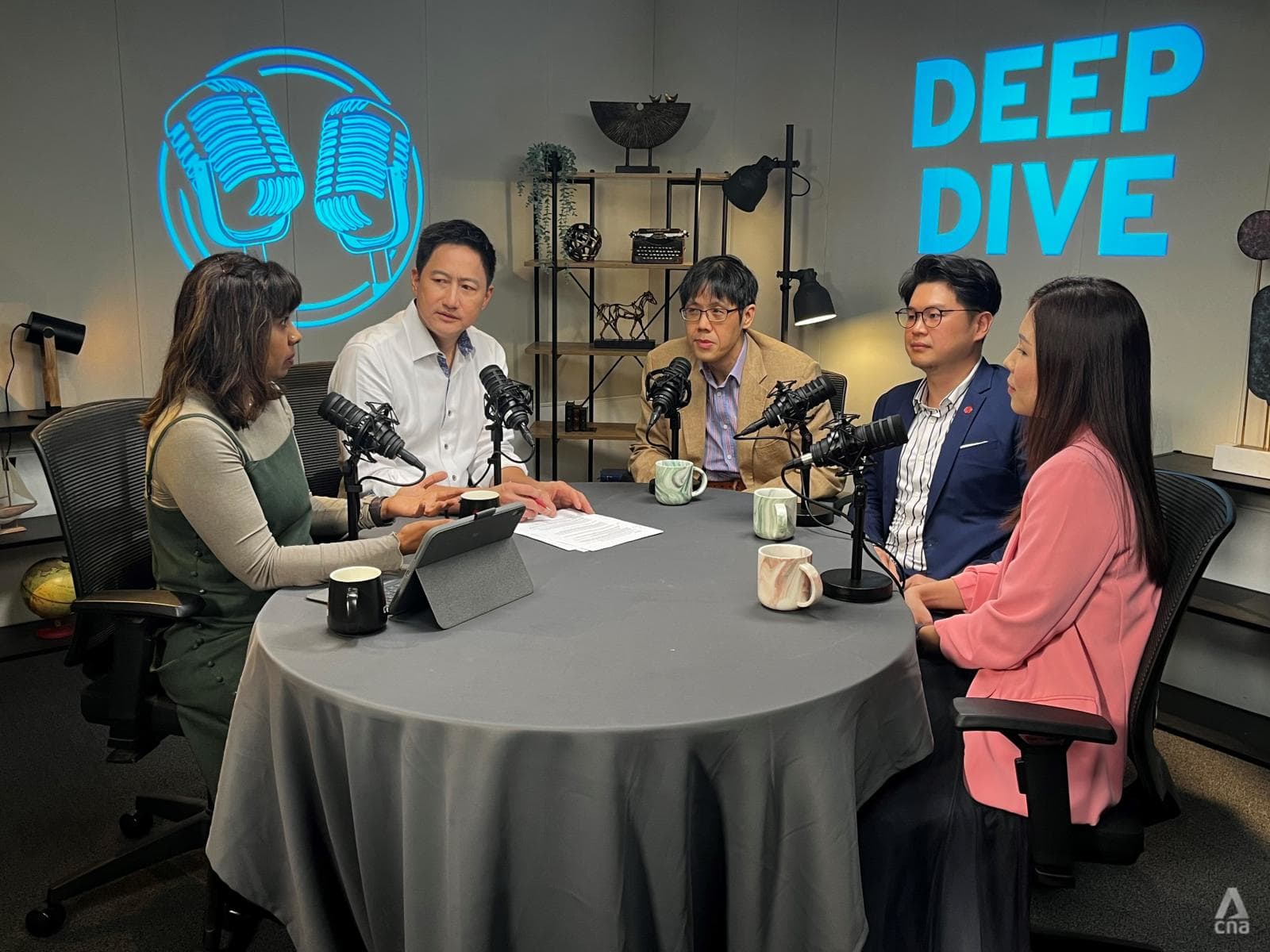Deep Dive Podcast: Budget 2025 wishlist - Tackling cost of living, jobs and family is a delicate balancing act
In the leadup to Budget 2025, we speak with three guests - a parent of two and elderly caregiver, a business owner and an economist to find out what Singaporeans want.
.jpg?itok=HLI2xFsk)
CNA's weekly news podcast takes a deep dive into issues that people talk about at dining tables and along the office corridors. Hosted by Steven Chia and Crispina Robert.
It’s an SG60 Budget in an election year with Prime Minister Lawrence Wong set to lay out some priorities for this year. What could be on the list?
Business owner Pulse Tan, parent of two and elderly caregiver Serene Chew, and labour economist Walter Theseira give their take in a conversation with Steven Chia and Crispina Robert.

Here's an excerpt of the conversation:
Crispina Robert, host:
Generally, are you guys surprised by the daily increase (in prices)? Somebody was telling me that ... food delivery has gotten quite expensive. Private hire rides have gotten more expensive. What do you think?
Pulse Tan, business owner:
Grab is definitely a lot more expensive. Because I live in Woodlands, to get to my office in Ubi, it used to be sub S$20. Now I'm happy if at peak hours it's at S$30, because it can go up to S$40. Then if you are traveling back from town at night, it can go up to S$60 if it's raining.
Crispina:
So Walter, this is where you come in with the big picture stuff about costs. I'm sure you've heard this ad nauseam.
Steven Chia, host:
And it's not unique to Singapore because actually, one would argue that inflation happens and cost of living overall is going up, right?
Walter Theseira, economist:
If you look at the numbers, inflation pressure is actually going down this year. So it was much lower in the last year than it was over the past couple of years.
But I think the reason why everybody is obviously very aggrieved is that when you look at how wages have actually evolved, wages haven't kept up that much.
So over the last five years or so, we saw less than 1 per cent annual real wage growth, and that is very, very low compared to Singaporeans' experience in, let's say, the 2010s when you had much higher annual real wage growth.
So it's no surprise that the average Singaporean is feeling like their standard of living isn't getting better, because it really hasn't that much in the last couple of years compared to 2010s ... The other thing, when we say inflation is a certain number, right? That is actually a composite number.
It's calculated from a basket of many different kinds of goods and services. And what's going on here is the kind of things that we see on a day-to-day basis and we pay for, that has probably gone up more than the average things that go into the basket.
So to give you an example - what has actually gone down in the last few years has been the stuff that we buy that is imported and for which now we have got this great e-commerce supply chain. You can buy direct from the manufacturer in China, and the prices of those things have gone down.
But for us, on a day-to-day basis, the food prices have actually gone up, and retail food especially has gone up ...
Crispina:
But do you think we are likely to have more CDC vouchers? Most people would think the best way ... is to just give them cash or vouchers.
Serene Chew, parent of two and elderly caregiver:
I want to say that the CDC vouchers (are) like having chocolate on a bad day. You kind of feel good for the moment but does it actually help you in the long run?
I mean, it's good that the government is doing this for us, trying to support all of us in their ways, but from a sustainability standpoint, it doesn't solve the crux of the issue.
Steven:
Walter, is it possible for governments to come in and to help fix some of this?
Walter:
When you look at the policy options the government has and how other governments have been trying to tackle this issue, you see some places they actually try to implement things like subsidy systems and so on.
But that is not something we usually do, because a subsidy kind of system tends to be very inefficient. You end up spending a lot of money on it, and a lot of the help from that actually goes to people who may not need it so much, like the richer people.
I mean, this is especially if you subsidise things like petrol, which generally, richer Singaporeans use, because of the cars and so on.
Crispina:
But what if you subsidise things like household items, like rice, oil, those kinds of things.
Walter:
So that's where the CDC vouchers actually come in, because then the idea is instead of giving a percentage subsidy or keeping a price at a certain amount, you give people some cash back, and you let them decide what they want to do with it. And generally, that's better for consumers because different people have different kinds of things they want to spend on.
But ... I think the general idea is, we all know that just using government money to give it back to people is not super sustainable, and I think that's why coming back to real wages, there really has to be higher real wage growth.












